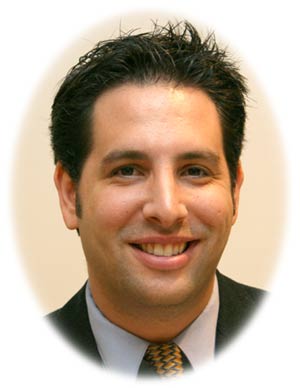
by Jordan Stewart, DPM
Timonium Foot and
Ankle Center
Established July 2006
Timonium, MD
|
One of the most challenging parts of starting my own practice has been taking on the role of businessman. When treating patients as a resident, I did not give much thought to the financial aspects of my treatment. I simply treated the patient. As a doctor and a business person, you have to ensure that you collect the money for your services to keep the practice afloat.
Accounts receivable represents any money that is owed to a business. Though it is unavoidable that all businesses will have money being owed to them for services provided, it is especially important that a new, small business keep the accounts receivable as low as possible. In order to achieve this goal, you have to COLLECT MONEY UP FRONT! |
|
When patients walk into my office, they are greeted by my secretary and a large sign that reads, "All copays, coinsurance, and deductibles are due at the time of service." When a new patient calls my office, my secretary collects all insurance information from them and contacts the insurance company to verify benefits. During this process, we are able to determine the patient’s copay, deductible, and details of the plan. If there is an annual deductible, we find out how much of that is remaining and what the deductible applies to. Although this is a time consuming process, it is well worth it.
Believe it or not, some patients know their insurance plans inside and out but will act as if they don’t when it is time to pay. Train your staff to collect copays before patients are taken into the exam room. If a patient refuses to pay the copay, then you might have to decide not to see them. If you see them without payment, the chase is on to collect your money. Keep in mind you are providing a service. People don’t buy a vacuum cleaner at Sears or get an oil change without paying, so why shouldn’t they pay you?
More and more patients are coming into my office with large deductibles, due to Health Saving Accounts (HSA) and Flexible Spending Accounts (FSA). When patients with these plans or other plans come into your office, be sure to collect all money up front. Use the fee schedule provided by their insurance carrier to figure out the bill. I explain that our policy is to collect deductibles up front and if there is overpayment, we will gladly refund their money. I would much rather refund money then chase someone down. In addition to getting paid in a timely manner, this process reduces the money it costs you to do invoicing.
In addition to collecting money, it is important to keep your overhead as low as possible. Postage is an unavoidable business expense, but there are ways to keep it low. I have saved on postage by faxing my referral notes and utilizing online billpay through my bank. When ordering supplies, several companies will waive shipping and handling fees if you order over a certain dollar amount. Therefore, try to order in bulk to avoid these fees. Finally, negotiate the prices of your office and medical supplies with different vendors. You will be surprised to see the variation in what different vendors charge for the same item.
Becoming a business person is a challenging process and you will make mistakes and waste some money along the way. Paying close attention and learning from your mistakes will only help your business grow. It has worked for me.
Let me know your thoughts.

Jordan Stewart, DPM
PRESENT New Docs Editor
[email protected] |